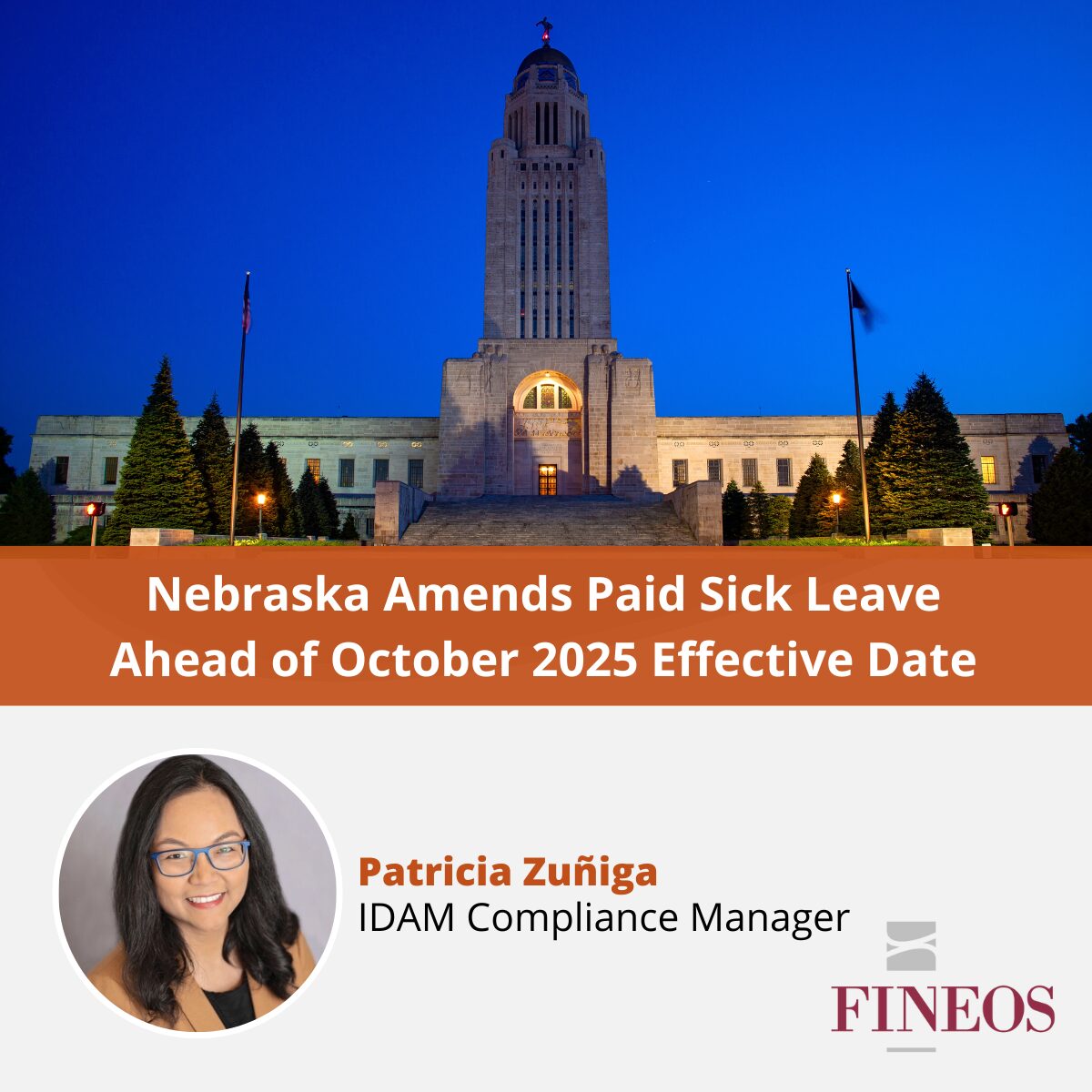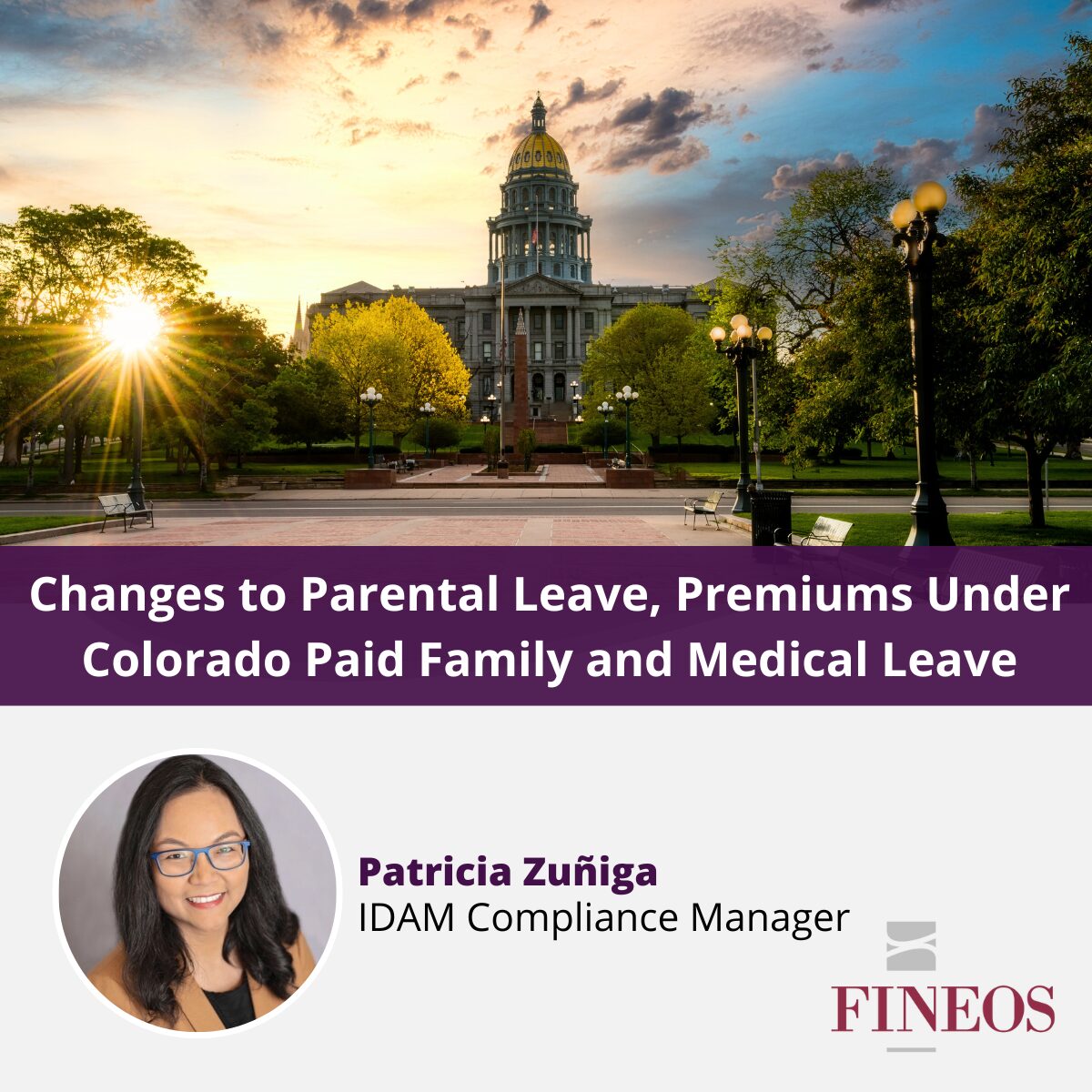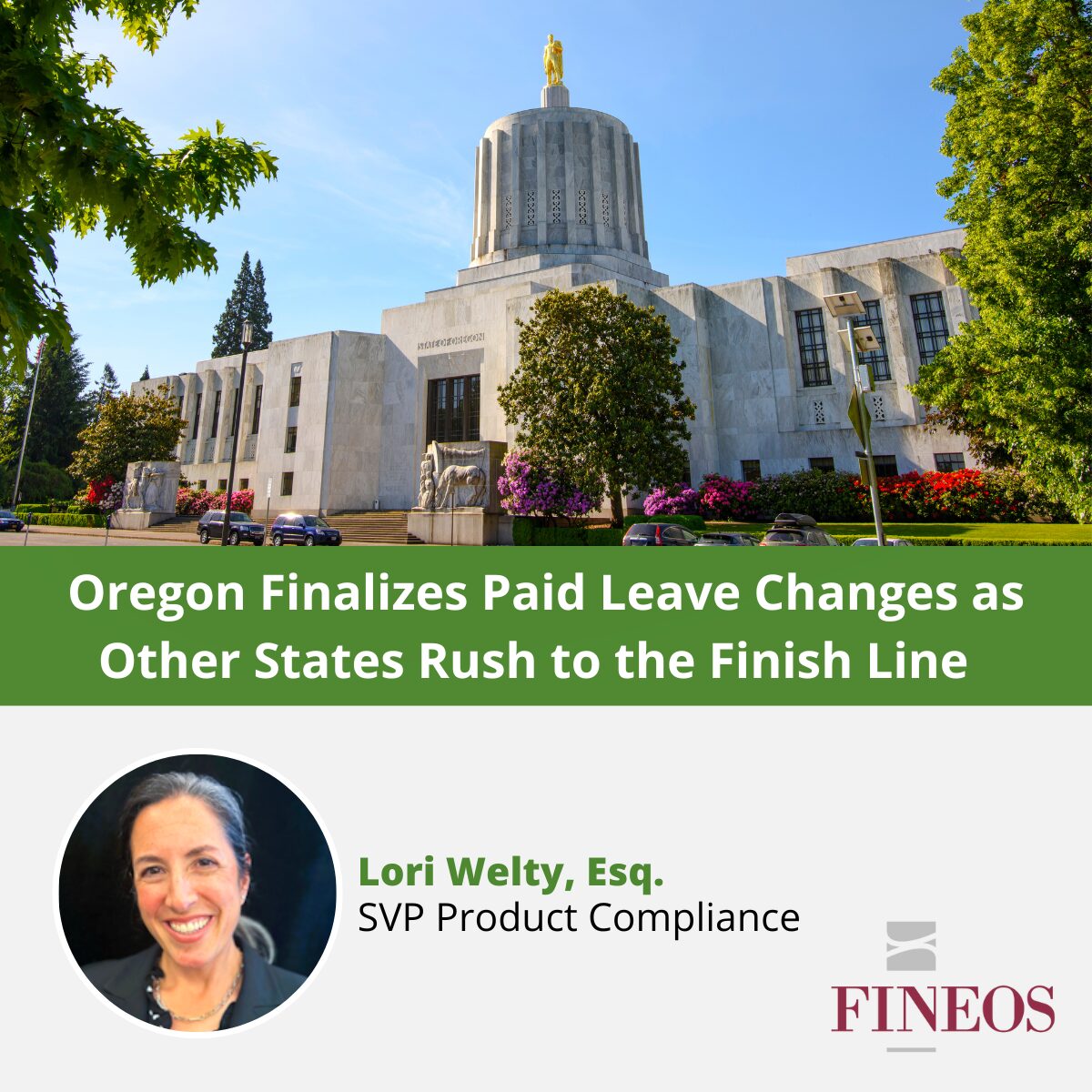Virginia Passes Pregnancy Accommodation Law
We wrote earlier this week about Virginia’s new law relating to minimum benefits in disability policies for childbirth. With an effective date of July 1, 2020, Virginia has passed a second pregnancy-related law, Senate Bill 712, this time requiring employers to provide reasonable accommodations for an employee’s limitations related to pregnancy, childbirth, or related medical conditions and prohibiting employers from taking adverse actions against an employee who requests such accommodation. The law applies to employers with at least five employees. The law specifies that a reasonable accommodation can include a variety of workplace accommodations, such as longer bathroom breaks, breaks to express breast milk, acquisition of equipment, light duty assignments, and job restructuring. A reasonable accommodation can also include a modified work schedule and leave to recover from childbirth. The law does not specify the length of time required for leave, however the law does provide that an employer must engage in a timely, good faith interactive process with an employee to determine if the accommodation is reasonable and, if not, discuss alternative accommodations. An employer is not required to make an accommodation that would impose an undue hardship on the employer.
Covered employers must provide notice, via posting and any existing handbook, to employees concerning (i) the prohibition against unlawful discrimination on the basis of pregnancy, childbirth, or related medical conditions and (ii) an employee’s rights to reasonable accommodation for known limitations related to pregnancy, childbirth, or related medical conditions. An employer must provide the same information at the start of employment and within 10 days of an employee’s providing notice to the employer that she is pregnant. Employers must also provide notice to all existing employees within 120 days of the effective date of the new law, i.e. by October 29, 2020.
Puerto Rico Enacts Paid Leave for Emergencies
On April 9, Puerto Rico passed House Bill 2428, enacting Act 37-2020, amending its Minimum Wage, Vacation and Sick Leave Act. According to the Act, during declarations of a state of emergency, non-exempt employees who have exhausted accrued sick leave and other available leave are entitled to emergency paid leave for an additional five days if they suffer or are suspected to suffer from a disease leading to the declaration of a state of emergency, including COVID-19. The new law was effective immediately.
New Jersey Clarifies Changes to Three Laws
We wrote last week about the changes to the NJ Paid Sick and Safe Leave, NJ Family Leave Act, NJ Temporary Disability Benefits (“TDB”) Law, and NJ Family Leave Insurance (“FLI”) Law. On April 14, the Governor of New Jersey signed Senate Bill 2374, amending some of the same provisions as previously addressed. Most of the changes have no substantive impact and were made solely for clarity, while others impose additional requirements.
Family Leave Act: The new law removes the prior changes that expanded the definition of “serious health condition” and instead, moves provisions regarding an emergency or epidemic into a distinct leave reason. The new leave reason allows for leave during a state of emergency, or when indicated by the Commissioner of Health or other public health authority, an epidemic, a known or suspected exposure to a communicable disease, or efforts to prevent spread of a communicable disease, which:
- requires in-home care or treatment of a child due to the closure of the school or place of care of the child of the employee, by order of a public official due to the epidemic or other public health emergency;
- prompts the issuance by a public health authority of a determination, including by mandatory quarantine, requiring measures as a result of illness caused by an epidemic or exposure to the communicable disease because the family member’s presence in the community would jeopardize the health of others; or
- results in the recommendation of a health care provider or public health authority, that a family member in need of care by the employee voluntarily undergo self-quarantine as a result of suspected exposure to a communicable disease because the presence in the community of that family member would jeopardize the health of others.
The new law also adds specific certification requirements for the new leave reasons and adds a provision to allow for intermittent leave with notice and effort to schedule the leave to avoid disruption of the operations
NJ TDI and FLI: The changes to these laws are largely technical, moving new sections to different parts of the law for clarity and better readability. The amendments to these sections leave intact the substantive changes made last week.
Washington D.C. Enacts COVID-19 Leave Laws
DC FMLA: On March 17, the Mayor of District of Columbia signed DC Act 247, the COVID-19 Response Emergency Amendment Act of 2020 (the “Act”). The Act amended the D.C. FMLA to cover a new category of unpaid leave called “Declaration of Emergency” leave (“DOE Leave”). DOE Leave is available for employees who are unable to work as a result of circumstances related to a public health emergency, including the coronavirus pandemic. Need for such leave is established if the Mayor, Department of Health, or any other District or federal agency or medical professional has recommended the employee self-quarantine or self-isolate or if the government issues a mandate of quarantine or isolation.
Unlike other reasons for leave under the D.C. FMLA, DOE Leave applies to District employers of any size, and the existing law’s employee eligibility requirements do not apply when an employee has been ordered or recommended to quarantine or isolate by an Agency or a medical professional. Further, this leave is not limited to the existing entitlement under the D.C. FMLA and instead is additional leave and available for the duration of the period for which the Mayor’s declaration of a public health emergency is in effect. The law went into effect as of March 17 but expires on June 15, 2020.
DC Paid Sick and Safe Leave: On April 10, the Mayor signed DC Act 286, the Coronavirus Response Supplemental Emergency Amendment, adding provisions to a number of programs in the areas of wage replacement, business relief, public safety, and more. The Act creates new paid sick leave entitlements for District employees working for employers with 50-499 employees. The new law is effective immediately and remains in effect until July 9, 2020.
According to the law, covered employers must provide paid leave for an absence from work due to any of the reasons for which paid leave may be used for the newly-passed federal Families First Coronavirus Response Act (“FFCRA”). An employee is entitled to paid leave an amount sufficient to provide paid leave for two full weeks of work up to 80 hours or, for a part-time employee, the usual number of hours the employee works in a 2-week period. While the FFCRA provides limits on the amount of pay, this law provides that an employee must receive their regular rate of pay or, in the case of an employee who does not have a regular rate of pay, the employee’s total gross earnings, including tips, commission, piecework, or other earnings for the most recent 2-week, divided by the number of hours the employee worked during that 2-week period.
While the peak of COVID 19-related leave laws appears to have subsided, additional changes may continue to drizzle in. Additionally, as many state legislative sessions naturally adjourn, we may continue to see a last push to pass additional non-COVID-19 related bills that have idled. Stay tuned for additional updates.
Simplify the complex with FINEOS Absence that supports federal, state, municipal, state-mandated and employer PFML plans. The FINEOS Integrated Disability and Absence Management (IDAM) solution brings together the robust FINEOS Absence, the market-leading FINEOS Claims and FINEOS Payments to develop a single book of record for all absence management related services, including workplace accommodations to facilitate stay-at-work and return-to-work. If you’re ready to simplify the complex landscape of absence management, contact us at info@FINEOS.com.


